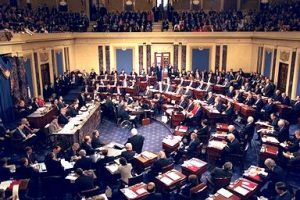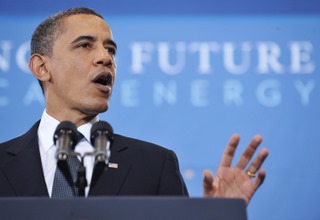7 item(s) were returned.
Energy Project Campaign Manager, Policy Analyst
Texas Public Policy Foundation
The Production Tax Credit (PTC), a federal renewable energy subsidy, is a $24-per-megawatt-hour credit based on energy production rather than demand. That means those who produce renewable energy can receive the credit regardless of whether or not that electricity is actually needed. The incentive is so immense that at peak hours of output wind producers can actually pay retail electric providers, the companies that deliver the energy to homes and businesses, to take their product. This “negative pricing” scheme caused by the PTC and other subsidies is having serious consequences.The instability it causes can push out the energy producers that keep… [more]
View InsightOn Friday, GOP negotiators released their Conference Report (Report) reconciling House and Senate versions of the Tax Cut and Jobs Act. The tax bill would affect U.S. energy policy in several ways, impacting electric vehicles (EV), the clean energy industry, as well as oil & gas operations. Now that a deal is complete, two significant energy-related items, the Base Erosion Anti-Abuse Tax and the opportunity to drill in the Arctic National Wildlife Refuge, are likely to become law very soon. Base Erosion Anti-Abuse Tax: To offset U.S. tax liability, multinational companies often make payments to overseas affiliates and also purchase… [more]
View InsightPresident & CEO
The Electricity Consumers Resource Council
The Federal government supports energy investment and production through the tax code and spending programs administered by the Department of Energy (DOE). In 2016, energy-related tax preferences cost an estimated $18.4 billion, while relevant DOE spending programs cost $5.9 billion. DOE programs advance knowledge benefits, which the private sector underproduces because companies cannot capture all the benefits for themselves. Early-stage research and development (R&D) has the largest “knowledge spillovers,” yet DOE direct investments in applied (late-stage) energy research is more than double those in basic (early stage) research. Tax preferences may encourage knowledge benefits for nascent technologies but deter investment… [more]
View InsightPresident
RENEWPR
The American wind energy industry has grown in spite of the “boom and bust” cycle of wind energy development fostered by the renewal-expiration-renewal cycle of the wind production tax credit (PTC). The PTC is one of the primary tools used to spur wind energy development and expired at the end of 2013. The result was a 92% drop in 2013 installations, compared to 2012. Extension of the PTC will likely be the subject of debate about so-called tax extenders during the upcoming “lame duck” session of Congress as the wind industry seeks an extension of the PTC through 2015. The… [more]
View InsightSenior Tax Counsel
United States Senate Committee on Finance
As part of his efforts to comprehensively reform the tax code, Senate Finance Committee Chairman Max Baucus (D-MT) released a staff discussion draft on December 18, 2013 that proposed a dramatically simpler set of energy tax incentives that are technology-neutral, more predictable, and promote cleaner energy that is made in the United States. Policymakers have included tax breaks for energy in the tax code for nearly one hundred years. These incentives were created with good intentions to create jobs, promote energy security, and help reduce air pollution and environmental damage. But over the years, the number of provisions has ballooned… [more]
View InsightAccording to The President’s energy blueprint, the Obama Administration is calling on Congress to establish a $2 billion Energy Security Trust to invest in breakthrough research into technologies, such as advanced electric vehicles, homegrown biofuels, fuel cells, and domestically produced natural gas. The funds would come from oil and gas royalty revenues generated from development in Federal waters off the Outer Continental Shelf (OCS). Other highlights of the blueprint include: Making the renewable energy Production Tax Credit permanent and refundable; A new $25 million prize for the first, natural gas combined cycle power plant to integrate carbon capture and storage;… [more]
View InsightThe production tax credit (PTC) for wind energy is currently set to expire December 31st, 2012. The credit is currently 2.2¢ per kWh created by wind. The average price of electricity nationwide is 11¢ per kWh. A study released recently by the American Wind Energy Association (AWEA) states that without an immediate PTC program extension, wind energy “jobs will drop by nearly half, from 78,000 in 2012 to 41,000 in 2013.” According to the report, an extension of the program through 2016 could create nearly 17,000 wind industry jobs. Denise Bode, AWEA’s CEO, has stated that “these jobs could vanish if Congress allows… [more]
View Insight




